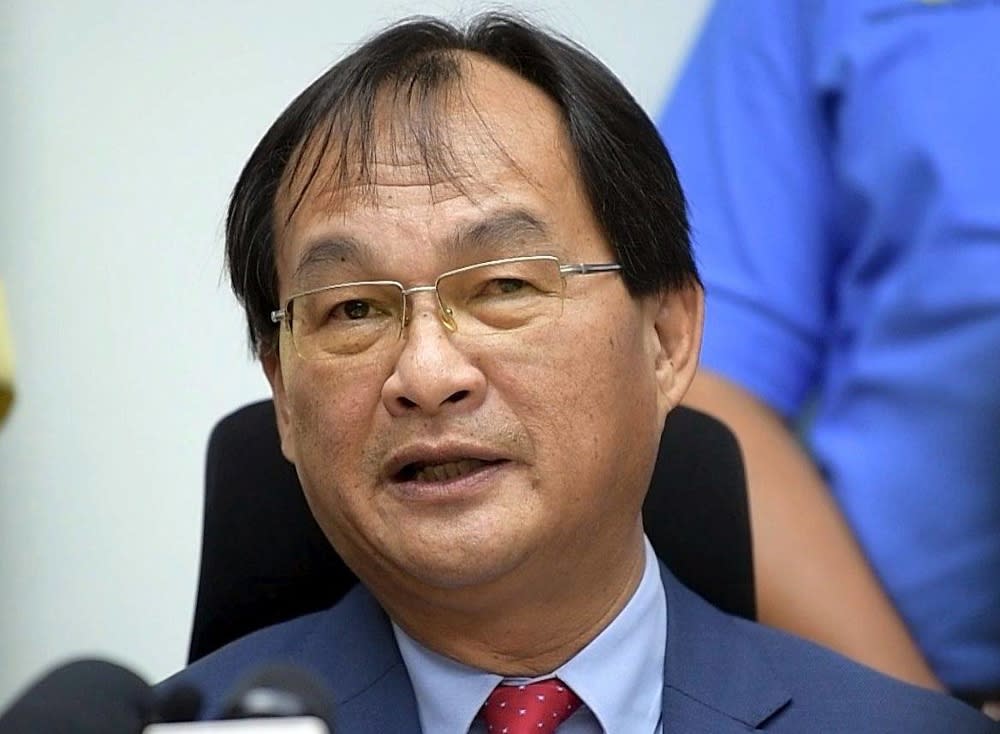In Malaysia Day message, PSB sec-gen calls on Putrajaya to settle outstanding MA63 matters immediately

KUCHING, Sept 12 — In his message in conjunction with the 60th Malaysia Day, Parti Sarawak Bersatu (PSB) secretary-general Baru Bian today called on the unity government to settle without delay outstanding matters relating to the Malaysia Agreement 1963 (MA63).
He said Deputy Prime Minister Datuk Seri Fadillah Yusof, who is also chairman of the MA63 Technical Committee, had been tasked with resolving these outstanding matters brought up by Sarawak and Sabah.
He said the promises of Borneonisation and non-interference in freedom of religion, for example the Allah issue, must be respected instead of just being given lip service.
“I also wish for four areas to be devolved fully or partially to Sarawak. These are infrastructure, education, health and the part of the Home Ministry’s functions in relation to the issuance of identity cards or the right to citizenship,” Baru, who is also the Ba’Kelalan assemblyman, said.
He said discussions on health and education matters should now focus on whether all administrative matters can be handed over completely to the Sarawak and Sabah governments.
“It would be better if we could also determine the syllabuses taught in our schools instead of following the schools in peninsular Malaysia as their focus is at times not in our interests,” he said.
He noted that much has been said about dilapidated schools, dropping standards, sub-standard textbooks, the lack of teachers and facilities in schools, especially in rural areas, and the slow creep of religious bias.
He said Sarawak was meant to have autonomy in policy and administration matters in education, by virtue of the Malaysia Agreement, and many felt that it was a mistake for the state government to have relinquished this autonomy in the 1970s.
“Our healthcare system and delivery are also subject to the policy decision of the federal government, which puts us in competition with the states of peninsular Malaysia for resources in terms of infrastructure, healthcare professionals, and equipment.
“Many of our hospitals and clinics are in need of upgrade and maintenance, and more doctors, nurses and other support staff,” he added.
Baru said education and healthcare should be included in the concurrent list under Schedule 9 of the Federal Constitution as a responsibility to be shared between the federal government and Sarawak.
He also said Sarawak needs to assume some degree of autonomy as the citizenship woes of stateless people are taking too long for the officers in Putrajaya to resolve, leaving many in limbo and denied the right to schooling, jobs, bank accounts and home ownership.
Baru said Sarawak’s transport infrastructure lags behind that of peninsular Malaysia, stressing that the state should assume the responsibilities from the Works Ministry so that it can prioritise, plan and design its own connections, rather than defer to the federal government.
“It would be better if the federal government hand over a reasonable portion of the infrastructure budget to us and give us the freedom to plan and execute projects that we need on infrastructure,” he said.
Baru, who is also a practising lawyer, urged the Gabungan Parti Sarawak (GPS) government to challenge the legality of the Petroleum Development Act 1974, the Continental Shelf Act 1966 and Territorial Sea Act 2012 that were passed by Parliament.
He said the Acts have never been challenged in any courts in Malaysia, and therefore, are ostensibly valid and operative for all intents and purposes.
“However, there is legal opinion that these Acts are in fact unconstitutional, and I am of the opinion that it is incumbent upon the GPS government to take up a case in the High Court to challenge their constitutionality.
“The state government alone has the locus standi to do so. I hope that the state government will do so, in order to return to us what is on and in our lands to us, for the benefit of our people,” he said.



